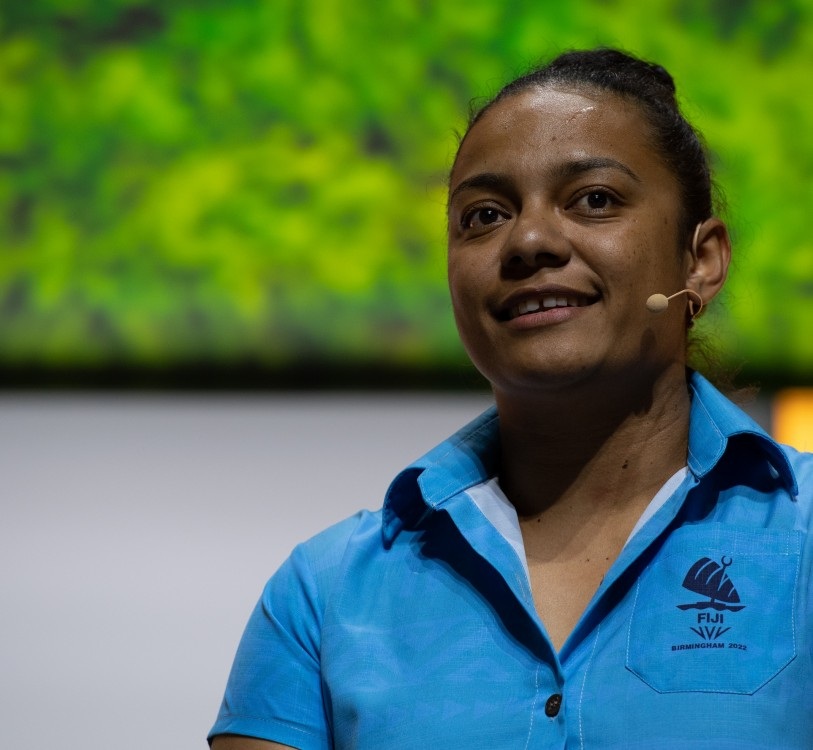MATELITA Buadromo’s journey is a portrait of talent, persistence and purpose. Born on January 15, 1996, Buadromo burst onto the international scene at just 11 years old and quickly became one of Fiji’s most versatile swimmers. Though she specialized in the 100m and 200m breaststroke, she proved herself an all-rounder, amassing national records and a haul of 18 Pacific Games medals – 2 gold, 10 silver and 7 bronze across multiple editions of Pacific Games.
She made her Olympic debut at 16 in London 2012, contesting the 200m breaststroke and returned at Rio 2016 in the 200m freestyle.
Her competitive résumé is only half the story. In 2022, toward the tail end of her career, Buadromo encountered a topic that would redefine her next chapter: competition manipulation. At an athletes’ workshop, she learned how seemingly harmless disclosures – like posting about injuries could be exploited by bettors and fixers to influence markets or outcomes. “As an example, I had no idea that any athlete sharing information about their injury could potentially be used for betting or match fixing,” she recalls and that realization lit a fire to educate others who might be just as unaware.
The lesson was simple and sobering: information is currency and athletes must protect it.
In September 2025, Buadromo was appointed one of ten global ambassadors for Believe in Sport, the IOC’s flagship campaign to prevent competition manipulation, run by the Olympic Movement Unit on the Prevention of the Manipulation of Competitions (OM Unit PMC). Selected through a collaborative process with National Olympic Committees, Continental Associations and International Federations, she represents Oceania alongside Australia’s Jane Claxton. She was tapped via Fiji’s National Olympic Committee (NOC) and travelled to Olympic House in Lausanne for a training workshop that mixed policy grounding with case studies spanning football, basketball and Olympic sports – an eyeopening catalogue of how manipulation can infiltrate even the most elite arenas.
“The beauty of sport is its unpredictability and fairness,” Buadromo says. “Match fixing takes that away and it disrespects the athletes who work so hard to get there.” She points out that in regions where many competitors face financial constraints, small inducements can seem harmless without proper education yet the career consequences, including bans, can be devastating.
As a Believe in Sport ambassador, Buadromo will meet athletes at major events and online, spark honest conversations about risk and empower them to safeguard their sports. Her work echoes proven prevention measures of education, codes of conduct, clear reporting channels and athlete-to-athlete outreach within a broader IOC strategy built on regulation and legislation, awareness and capacity building and intelligence and investigations.
The IOC has earmarked USD 10 million per Olympiad for these integrity efforts. Ambassadors like Buadromo operate front-of-house, with the OM Unit PMC handling investigations and escalation. Interpol contributes to training and ambassadors are always supported by unit managers when delivering sessions or responding to concerns. Requests can come from any NOC; in Oceania. Her calendar includes outreach at the 2026 Youth Olympic Games in Dakar, the 2027 Pacific Games in Tahiti and the Los Angeles 2028 Olympic Games, with on site activations similar to those piloted alongside IOC partners at the 2023 Pacific Games in the Solomon Islands.
As one of the latest cohort of ambassadors under the Believe in Sport name, she notes and their remit spans both Summer and Winter Games. The throughline is constant: protect athletes, preserve fair play and keep sport’s joy intact.
For Buadromo, the role also models a pathway beyond the pool.
“There’s a lot of opportunity in life after sport,” she says, urging current athletes to ask questions, seek mentors and engage with education programs. Her guiding test is simple: create what you wish you’d had.
“Always do your best. Even when it gets difficult and temptations come through, remember you’re protecting the competition and your own pride in the performance you give”



